What to watch in 2021 legislative session: policy debates, key lawmakers and dates
Every year, Florida lawmakers gather in Tallahassee to debate state policy, amend existing laws and pass new ones, and put together a state budget. This year will be no different, though the COVID-19 pandemic will be looming large over all of these discussions.
All of this gets done during a 60-day legislative session, which starts on March 2. (We’ll get more into important dates later.)
Lawmakers, however, have been holding committee meetings and voting on measures since November. So, a view of the issues gnawing at lawmakers and Gov. Ron DeSantis has already emerged. And the Republican majority in the Legislature will have better chances at passing its priorities, after increasing its numbers this past election cycle.
Here is what you need to know, as you follow along the legislative process:
Five issues to watch:
COVID-19 response
Florida is coming off a year defined by the coronavirus pandemic, and lawmakers will have a chance to address some of the issues the public health crisis has exposed across the state.
So far, the Republican majority has rushed to shield businesses from lawsuits related to COVID-19. House Speaker Chris Sprowls has made the liability bill a top priority, along with a measure (HB 9) that would crack down on scammers who provide fraudulent information about COVID-19 vaccines.
Many state lawmakers have promised to fix the state’s beleaguered unemployment system, which crashed amid the pandemic leaving thousands of people without access to state aid. Democrats have filed legislation to address the issue, but no leadership-backed proposals have been filed on the matter yet.
DeSantis also wants state lawmakers to look at legislation that would limit local governments’ emergency pandemic orders. A small group of Republicans, meanwhile, is looking at whether the governor’s executive powers should be limited nearly a year into the public health crisis.
The governor’s priorities
When DeSantis wants to draw attention to something, he makes it known through press conferences.
Since September, the governor has held three news conferences to tout three proposals: an anti-riot measure, a bill that would curb the influence of large technology companies, and an election package.
The riot bill (HB 1) was DeSantis’ first priority. He proposed the idea in the heat of the 2020 campaign as he tried to deliver Florida to then-President Donald Trump and following police brutality protests across the nation.
DeSantis has acknowledged that Black Lives Matter protests in Florida were largely peaceful and that the anti-riot bill is meant to prevent the kind of civil unrest seen in other parts of the country. Critics of the bill have said the measure is “destined to pass” because DeSantis, Sprowls and Senate President Wilton Simpson have prioritized it. What the final product would look like? That remains to be seen.
The governor, a staunch Trump ally, is also pushing legislation that would protect candidates like Trump from being banned on social media.
The proposed bill, which is still being drafted, asks the Legislature to impose penalties for social media companies whose algorithms are perceived to favor one candidate over another. It builds on SB 520 that would require platforms to give a 30-day notice to a user whose account has been disabled or suspended and explain why the user was being punished.
Lastly, DeSantis has said he plans to target several issues this session: mail ballots, drop boxes, special interest groups’ involvement in elections and the signature-matching process. Below we delve more into the election law changes the GOP is eyeing.
Election laws targeted
Florida Republicans took a victory lap in the aftermath of the 2020 election. For once, the Sunshine State was not the punch line of election dysfunction jokes.
Yet one of the hottest issues this legislative session will likely be changes to the state’s election process.
DeSantis, and top Republican leaders, have acknowledged the 2020 election went “smoothly.” However, they want to target the use of drop boxes to collect vote-by-mail ballots and would prohibit volunteers from collecting mail-in ballots from people outside of their immediate families, or what they call “ballot harvesting.” The state already prohibits people getting paid to collect vote-by-mail ballots.
After a record 4.8 million Floridians voted by mail in November, one bill that is moving in the Senate would add a hurdle to voting by mail in future general elections. If SB 90 becomes law, it would restrict vote-by-mail applications to one election cycle and specifically require everybody who received a mail ballot last year to re-apply in 2022.
Under current state law, voters requesting a mail-in ballot receive them for two cycles of general elections.
Education policy amid a pandemic
Schools remain in the grips of the coronavirus pandemic since schools shut down and learning was disrupted last spring.
Many struggles continue — whether financial, social or academic — and local school officials and education groups have high hopes that state lawmakers will prioritize those schooling issues.
So far, Republican lawmakers have proposed enhancing early learning programs and continuing remote learning options without impacting district funding. But the main issue facing lawmakers is whether the state should fund districts based on actual student attendance counts or use some other formula for the next school year.
This year, the Legislature set its education budget based on enrollment forecasts that did not anticipate the pandemic. Even as those projections fell short, the state did not cut funding for districts. But decreased numbers — nearly 88,000 fewer students statewide — have raised the possibility of budget cuts for districts.
Facing a multibillion-dollar budget shortfall
For the first time since the Great Recession, the Legislature is facing a budget shortfall that could force spending cuts in education, healthcare and other social programs.
Florida’s revenue drop won’t be as bad as the Great Recession, state economists have said. But the state is facing an estimated $2.75 billion shortfall. DeSantis has proposed a rosier-than-expected state budget for the next fiscal year that avoids laying off scores of employees or dipping into state reserves.
His proposed $96.6 billion budget is $4.3 billion more than the budget Florida lawmakers passed last year. It maintains, and in several cases exceeds, last year’s funding in key areas, including education and the environment.
But DeSantis’ proposed budget for the 2021-22 fiscal year, which begins July 1, is advisory only. Lawmakers are the ones who ultimately write and pass the state budget. How they plan to fund education, healthcare, the environment, prisons and everything that is state government will be a must-watch this year.
Five lawmakers to watch:
Senate President Wilton Simpson

Senate President Wilton Simpson, R-Trilby, is the leader of the Florida Senate for the 2021-22 term.
Simpson, 54, played a key role in fundraising and backing Republican Senate candidates this past election cycle and helped solidify the GOP’s control of the upper chamber. During his term, he will oversee the Senate’s redistricting efforts for congressional and state legislative districts — a role that gives him a great deal of political clout.
He is a multimillionaire who has built his wealth with the family business, an egg farm in Trilby and an environmental cleanup company with operations throughout the Southeast. Simpson turned his family egg farm into a multimillion-dollar operation with factory-like precision, producing tens of millions of eggs that are sold in grocery stores throughout the state, including in Publix.
Simpson is a reliable big-business conservative. In 2018, he was instrumental in enacting the Legislature’s gun restrictions and school safety measures after the Parkland massacre, even though his name wasn’t on it.
Simpson was adopted at age 6 and has made it a legislative priority to improve the state’s child welfare system.
House Speaker Chris Sprowls
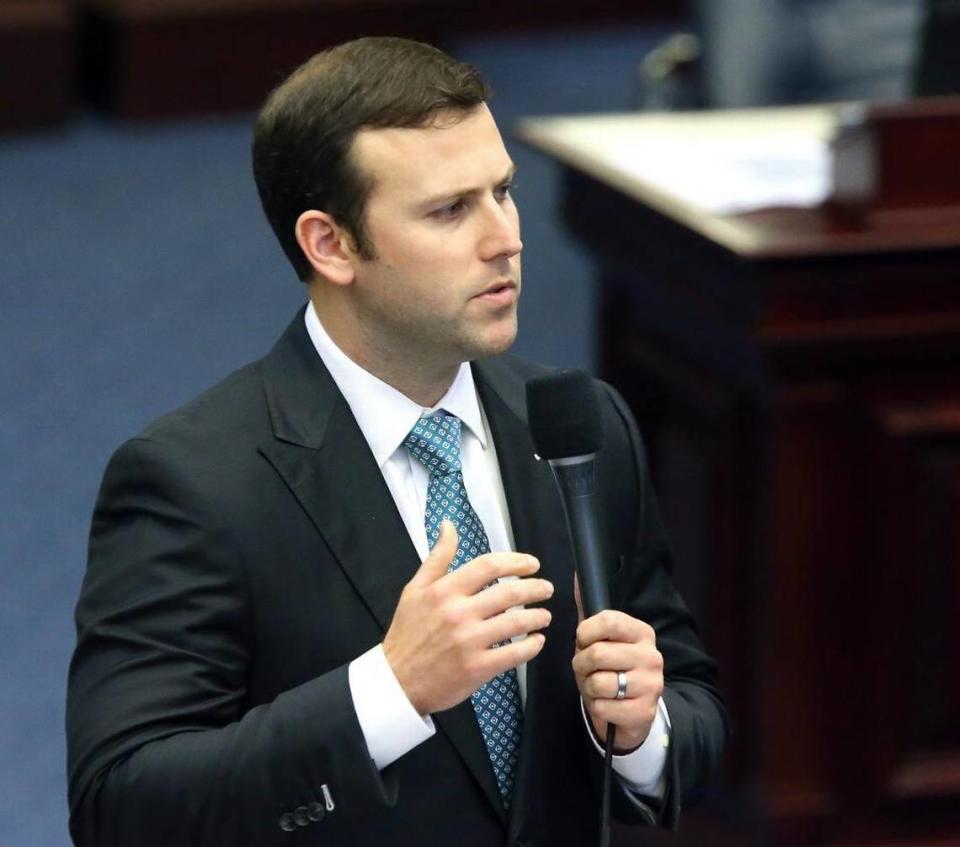
House Speaker Chris Sprowls, R-Palm Harbor, is the leader of the 120-member Florida House of Representatives for the 2021-22 term.
Sprowls, 37, led fundraising and Republican strategy in the 2020 election that allowed the GOP to make significant gains in the House. Republicans now lead the chamber 78-42. He will also oversee the House’s redistricting efforts of both congressional and state legislative districts.
His district in northern Pinellas County — with his home city of Palm Harbor — makes him only the second House speaker from Pinellas after Rep. Peter Rudy Wallace in 1995.
Sprowls, the son of a New York City police detective and an office manager, graduated from the University of South Florida and got a law degree from Stetson University, and served as an assistant state attorney for the Sixth Judicial Circuit, which covers Pinellas and Pasco counties. He said his job in the Sixth Judicial Circuit dramatically shaped the way he approaches problems: analytically, with an eye toward the long term.
Senate Minority Leader Gary Farmer
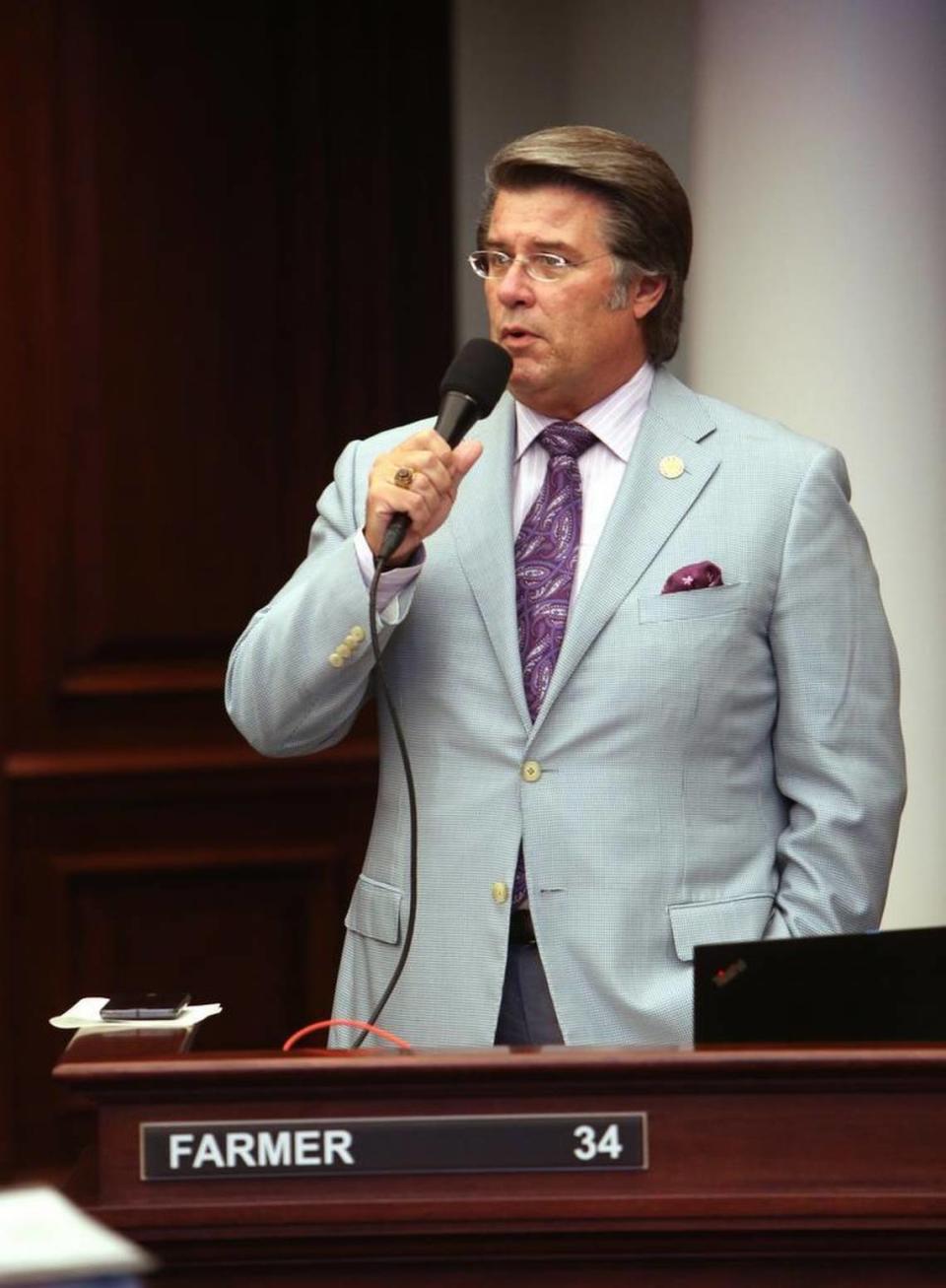
Sen. Gary Farmer, a Broward County Democrat, leads the Democratic caucus in the Florida Senate.
Farmer, 56, a trial attorney who lives in Lighthouse Point, has served in the Senate since 2016, representing eastern Broward County.
Farmer led the Senate Democratic campaign during the 2020 election cycle, which resulted in Democrats losing one seat in the chamber. After the Democrats’ losses, Farmer faces an uphill battle getting party priorities passed in the Republican-dominated chamber.
Ahead of session, Farmer has called on lawmakers to fix the state’s unemployment system and has urged lawmakers to work across the aisle to tackle other problems caused by the pandemic.
House Minority co-leaders Evan Jenne and Bobby DuBose
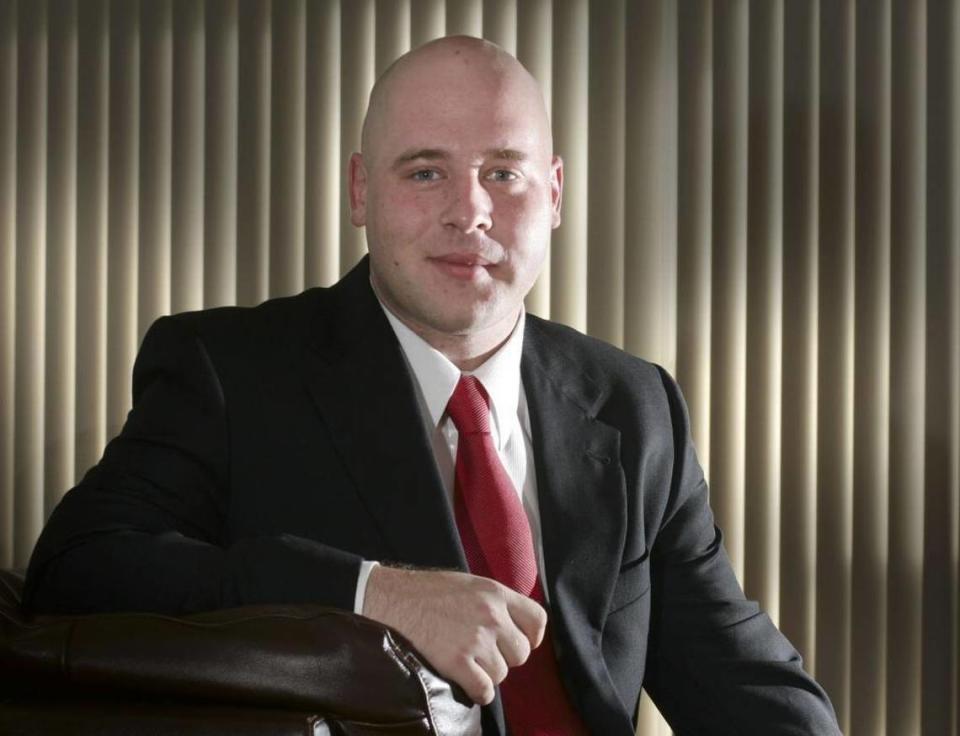
State Reps. Evan Jenne, D-Hollywood, and Bobby DuBose, D-Fort Lauderdale, will serve as co-leaders of House Democrats, the minority party in the chamber.
In 2019, they reached an unusual agreement to share power to unite the caucus. It was determined that Jenne would handle policy issues and the duties of leading the legislative caucus, while DuBose would handle the campaign arms of the party and lead Democrats’ 2020 election efforts.
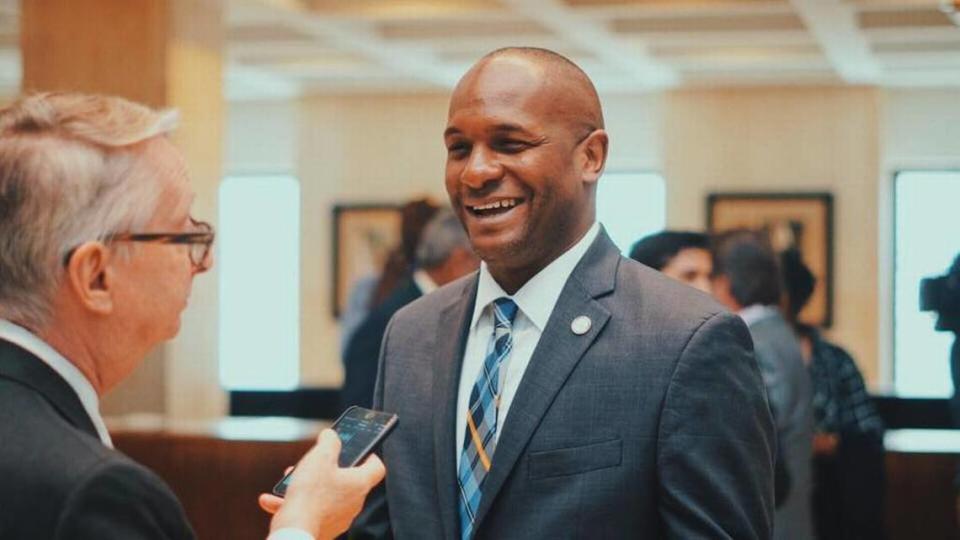
House Democrats are going into session with fewer numbers after suffering painful losses during the 2020 election cycle. They lost three incumbents, two open seats, and a handful of races that they had deemed flippable Republican House districts, and gains made in the 2018 election were lost.
Jenne, 43, and DuBose, 50, have both served as members of the Florida House since 2014. Both represent districts that include parts of Broward County.
Prior to serving in the Legislature, DuBose served on the Fort Lauderdale City Commission, and rose to the post of vice mayor. Jenne’s family is well-known in Broward County. His dad, Ken, was a longtime politician and sheriff in the county.
Orlando state Rep. Anna Eskamani
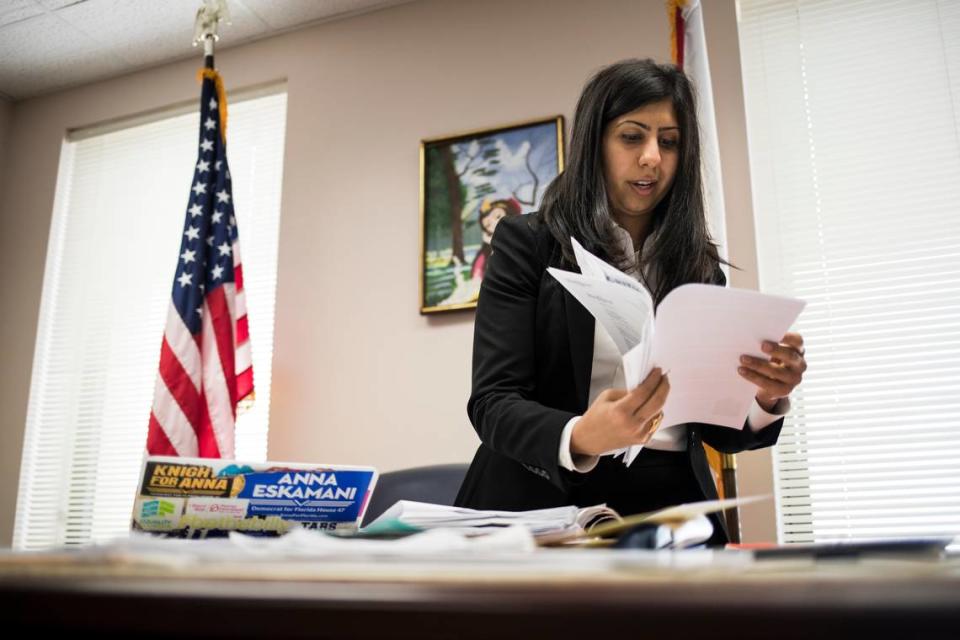
Orlando state Rep. Anna Eskamani, a rising star in the Florida Democratic Party, over the past year has landed in the national spotlight as she openly flirts with a possible run for Florida governor.
Eskamani, 30, is the daughter of Iranian immigrants and a tough critic of DeSantis and at times, members of her own party, including Agriculture Commissioner Nikki Fried and former state Democratic Party Chair Terrie Rizzo.
She is arguably the most prominent member of the party’s progressive flank, along with her close friend, state Rep. Carlos Guillermo Smith, also an Orlando Democrat. While both are members of the minority party in the House, they have a proven ability to navigate the complexities of the GOP-dominated Legislature.
Throughout the pandemic, Eskamani has been critical of the state’s beleaguered unemployment system. Ahead of the legislative session, she has filed legislation that would raise weekly unemployment benefits from $275 to $500. The measure is unlikely to pass — or even get heard by a committee — in the Republican-dominated Legislature. But you can expect her to make noise about the issue this year.
Five words and phrases to know
▪ Preemption: When this term is used, it is always related to stripping the authority of local governments to regulate a specific item or issue. Preemption bills surface in Tallahassee every year.
In 2020, the Legislature preempted Key West’s sunscreen ban. The year before that, DeSantis flexed his veto power on a preemption bill that would have barred local government from banning plastic straws. And this year, lawmakers are proposing a slew of new preemption bills, including ones that deal with vacation rentals, seaports, and school board salaries.
▪ Temporarily postponed: The term seems self-explanatory. But behind the scenes, when a lawmaker says a bill has been “temporarily postponed” or “TP’d” it means the bill is in danger. Yes, sometimes it means the committee ran out of time and the bill’s hearing was postponed. But most of the time, what it really means is that there is a problem with the measure. It means the sponsor of the proposal needs to fix the issue, that there is some arm-twisting going on — or that the bill is dead.
▪ Balanced budget: The Florida Constitution only requires the Legislature to pass one bill every year: a balanced budget.
What does that mean? It means lawmakers are required to craft and pass a state budget that does not spend more money than the state brings in. Unlike the federal government, the state cannot have a budget deficit. The House and Senate figure out how much money each area of state government should get by looking at figures provided by state economists in March. They use those figures to “balance out” and craft the budget.
▪ Lobbyist: A person who is paid to try to influence the governor and members of the Legislature. They must register with the state and disclose their compensation amounts.
You can find who is lobbying what and how much they are getting paid at floridalobbyist.gov. The Florida House also has a lobbying disclosure database that allows you to see who is lobbying for what when measures start moving in the Legislature.
▪ Super-majority vote: Florida requires a “super-majority vote,” or a two-thirds vote of the Legislature to raise taxes or state-mandated fees.
That provision is relatively new. In 2018, Florida voters approved a constitutional amendment that required the super-majority vote. The higher threshold means it only takes a third of members in either the state House or Senate to block any future tax increase or repeal existing exemptions.
Republicans have controlled the Legislature for decades and have long pushed to cut taxes, not raise them. But in 2009, Republicans did agree to major tax hikes when struggling to balance the budget because of the Great Recession. This term may come up this year, as lawmakers try to balance a budget amid revenue shortfalls because of the pandemic.
Key session dates
▪ March 2: The official start of the 2021 legislative session. On this day, the House and Senate typically hold a festive joint session in the House chamber to hear the governor’s State of the State address.
But this year, it will be different. The Senate will stay in its chamber during the session opening and will watch DeSantis’ address on a big video screen. The Senate public seating gallery will be closed as a pandemic-related precaution.
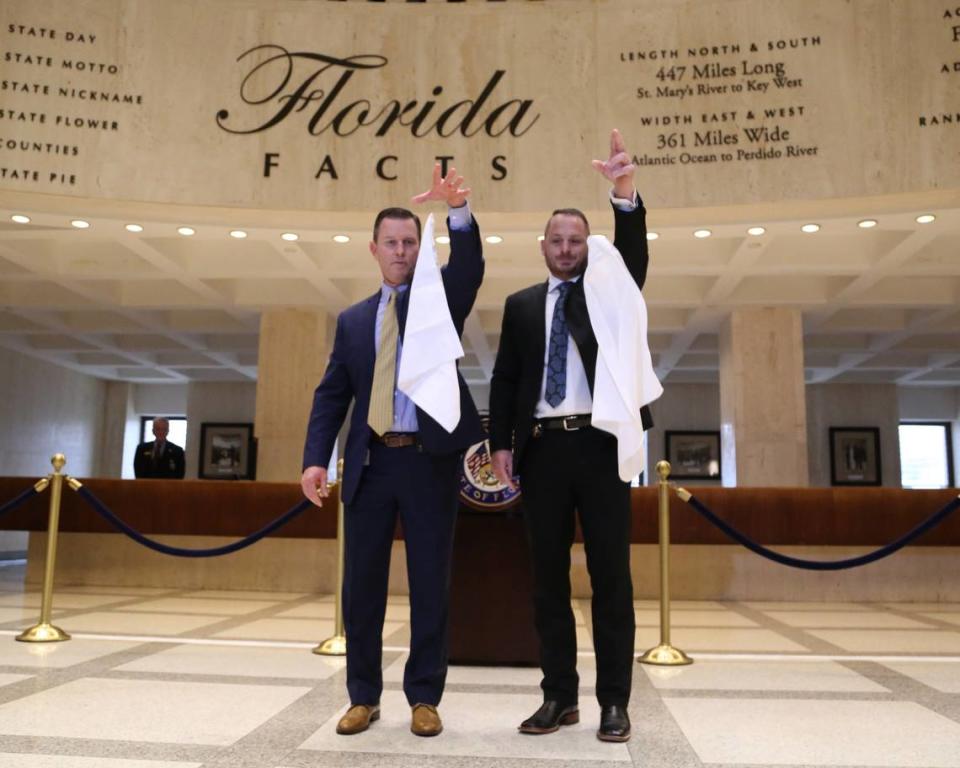
▪ April 30: It is the 60th — and last — day of the regular legislative session. It is also known as sine die. In Latin that means without day and it features a dropping-the-handkerchief ceremony in the state Capitol. The tradition entails the House and Senate sergeants-at-arms dropping handkerchiefs at the moment that both chambers agree to adjourn.
In pre-pandemic years, the event has drawn large crowds. Lawmakers, lobbyists, presiding officers and the governor, everyone gathering to see the handkerchief drop. That tradition, however, was less boisterous as the pandemic was taking hold last year.
▪ January 11, 2022: If one of the issues you’re watching doesn’t make it this year, there’s always next year! Lawmakers will be back in Tallahassee to begin the next legislative session on January 11, 2022. That means the Legislature’s official business will be done in March, just in time for the ‘22 campaign season.
How to find and contact your lawmaker
So, you’ve done your homework and really want to tell your lawmakers how you feel about a bill. That’s understandable. Here is where you can find them.
Florida House members can be found at myfloridahouse.gov/representatives. And Florida senators can be found at flsenate.gov/Senators. When you find your county, you will find your lawmaker, their office phone numbers and information about the bills they are sponsoring and the committees they sit on this year.
Those links will show you the full rosters in both chambers. It shows the counties each lawmaker represents.
If you don’t know the names of your senator or representative, check your voter registration card for your district numbers and look them up that way on the House and Senate lists, or go to myfloridahouse.gov/FindYourRepresentative and enter your address to find a list of all your elected state and federal officials. This works for non-voters, too.

